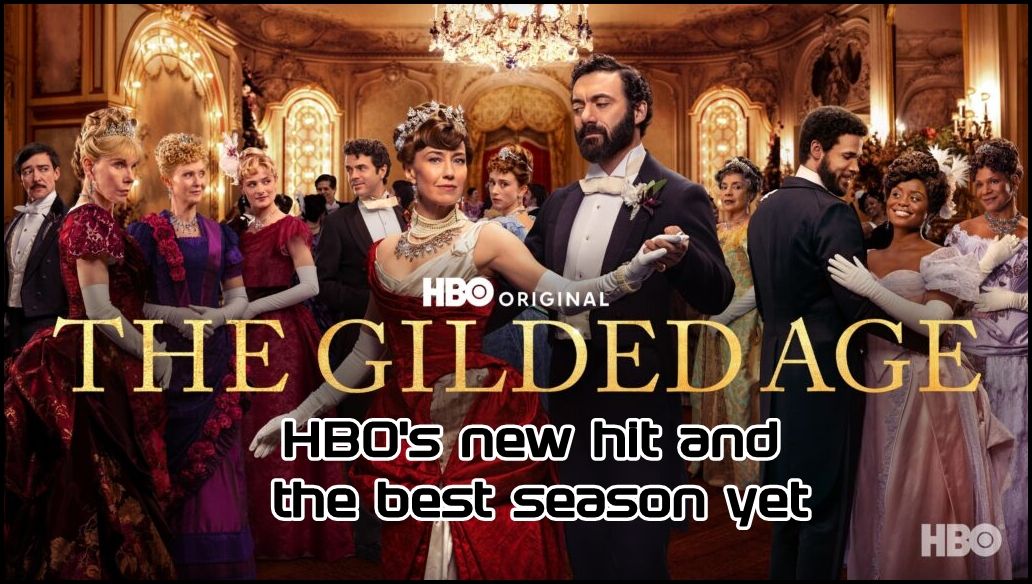
If you're a fan of Downtown Abbey and looking for another series from its creators, you've got plenty to watch. You don't have to be one to enjoy it, though. You just need to like the setting, as there's no need to worry about the show's quality. It's hard to judge whether it improves from season to season. This is a slightly different story. GA has maintained a high standard from the beginning, and I don't see much difference between seasons 1, 2, and 3. Although, no, a minor correction – there's a noticeable difference in the main character's storyline; it's definitely less irritating. I still think Boardwalk Empire is better, but it's only a notch lower, maybe half as high. WARNING! This and the following four paragraphs are spoiler-free. In the following paragraphs, I'll address what happened this season, but I won't reveal the most important details. Ultimately, I'll be very general about them.
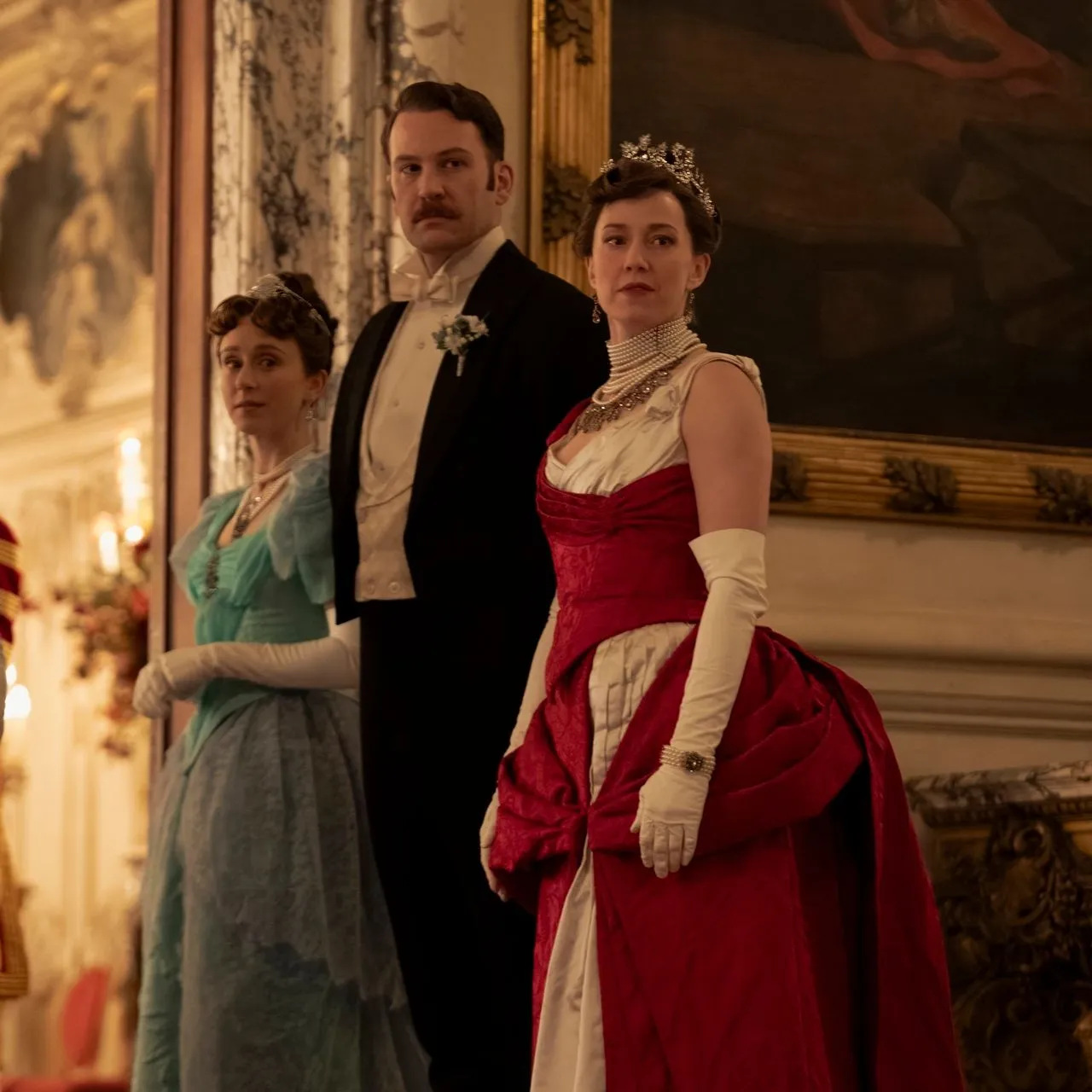
But let's start from the beginning. Although the target audience for this series is primarily women and lovers of period cinema, men will also enjoy it. It's no coincidence that I'm referring to a term associated with Victorian England. The series takes place in the 1880s, primarily in New York, but not exclusively. While most Americans don't feel inferior to the British, their elite does. This is evident from the outset among the members of the Women's Association and the English elite, who know they can afford a certain superiority. The series touches on numerous themes. Apart from those I've mentioned, the creators show us the Black elite (there actually was one; this theme was also touched upon in Boardwalk Empire) and their poor, primarily the former. In the case of the Whites, the poor are represented by servants. Although they constitute a significant portion, we mainly see the White upper class. We see the rivalry between them and observe their ordinary, everyday lives. Contrary to appearances, this isn't just entertainment. Even though women pretend to be great friends, they like to take advantage of opportunities to put a pin in the other's face in order to grow in their own or other people's eyes. With men, we focus primarily on their interests, as ballet and sipping tea together are boring to them. They'd rather drink alcohol and talk about money.
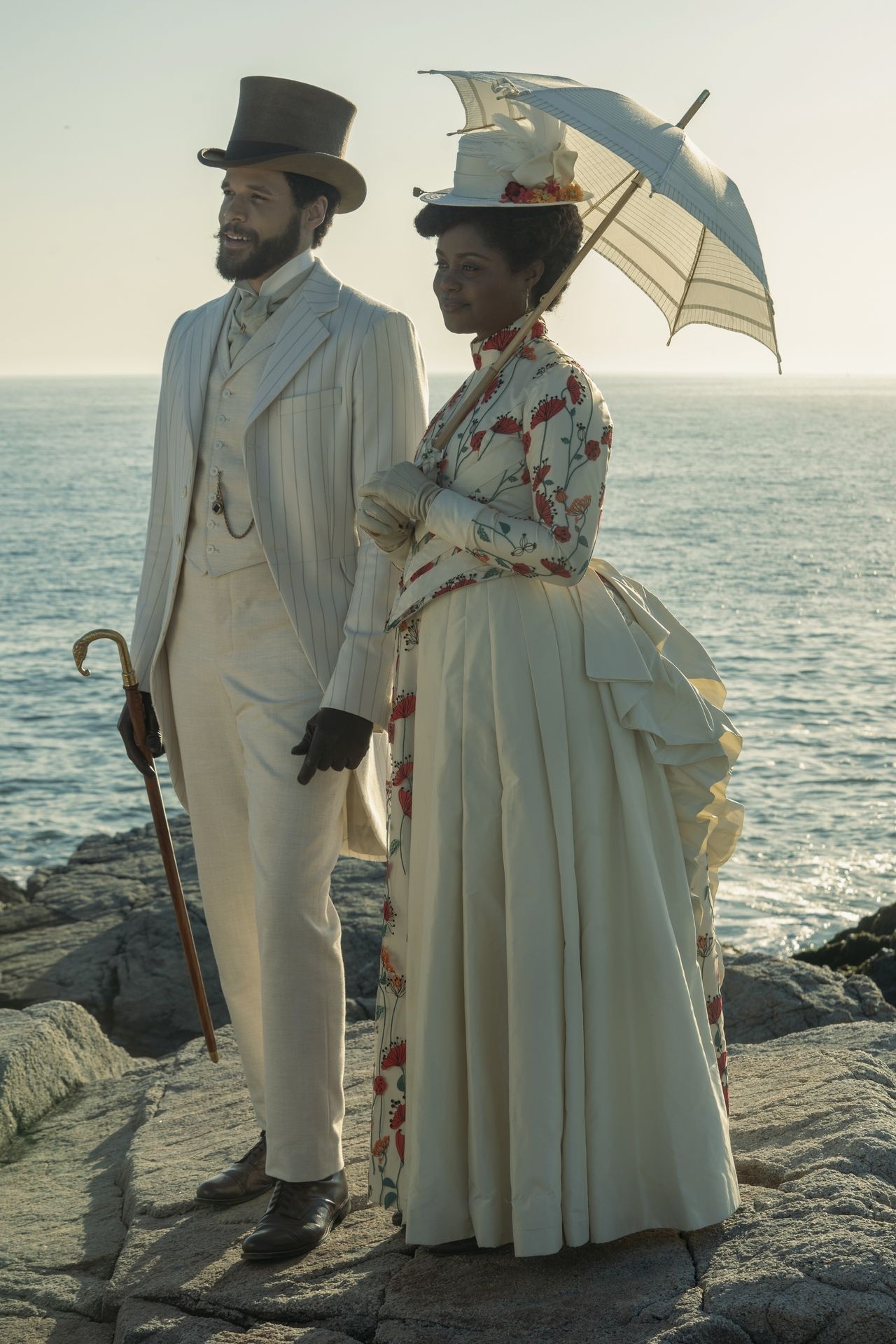
The series' main characters are Agnes van Rhijn, the family matriarch and owner of the house, her sister Ada Forte, and Marian Brook, their orphaned niece. Agnes is a cynical, sharp-tongued, but also good-natured and fair "woman with balls." She can slap her opponent so hard with a single line, or sometimes a look, that it hurts like a whip on the bare back. The greatest alpha female in the series, Bertha, the Russells' mistress, lost this competition in my opinion. Ada Forte is a very polite and remarkably naive woman, but for some reason, she has to learn to be a housewife. The results are quite good; Ada demonstrates that soft coercion can be just as effective. Marian Brook... Well... she is. She's annoying, but it's hardly surprising – she's a young, naive, and kind woman. She becomes less irritating over time. There's also Agnes's son, Oscar. He's an investor, so he's certainly not a fool, but he's naive and wronged. I'll expand on this in a later paragraph.
The second family is the Russells. Bertha, as I said, is the second-largest female. Although she can keep her temper in check, like Agnes, she is also incredibly impulsive and emotional. George Russell, her husband, is a down-to-earth businessman. Very masculine, logical to a fault, difficult to convince because of his compelling arguments, but his brain isn't filled with concrete. He can adapt dynamically to new circumstances. Their son, Larry, is following in his father's footsteps, and that's all I can say about him for now. Gladys, their daughter, is the jewel in Bertha and George's crown.
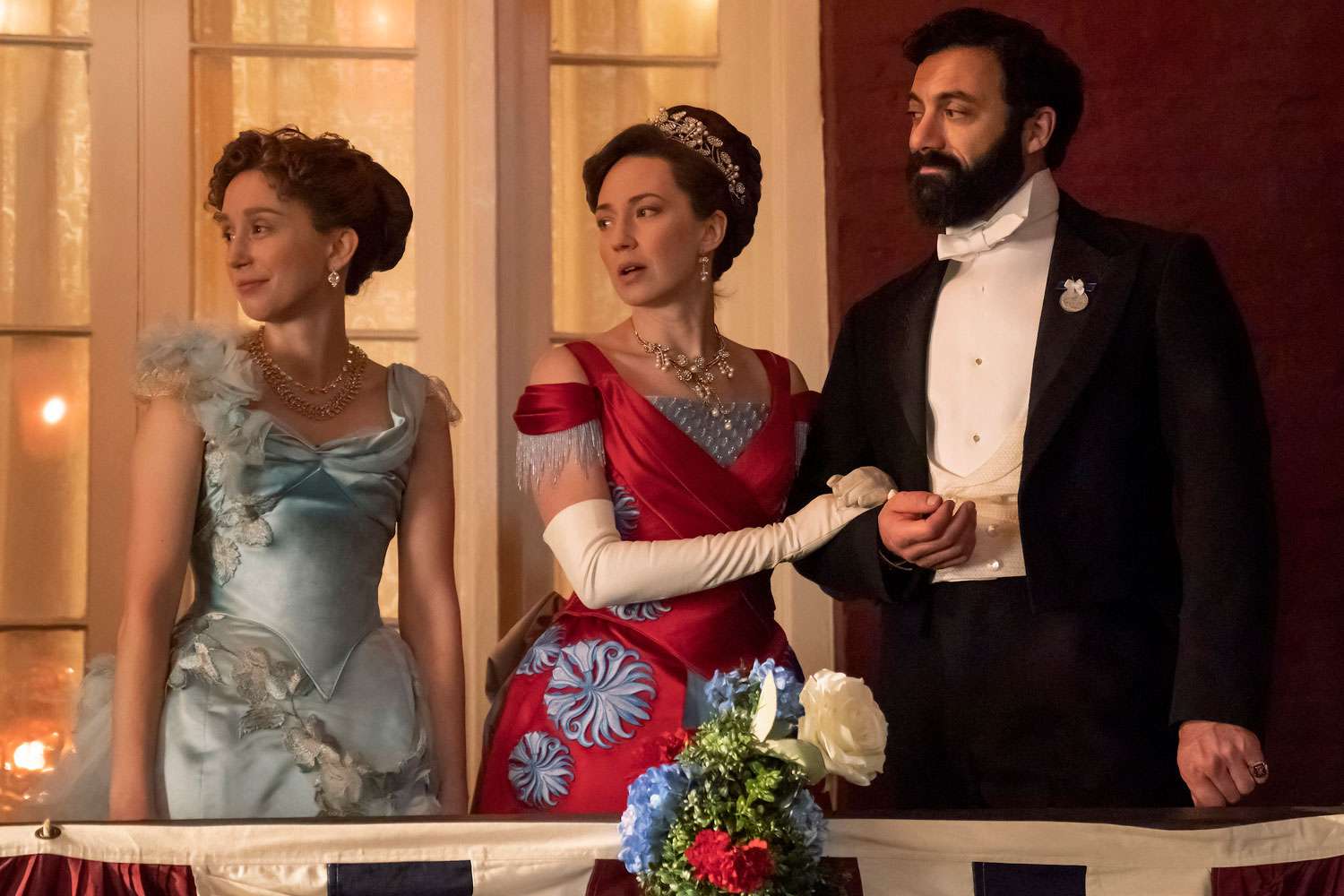
The main representatives of the Black community in the United States are the Scott family. The father, Arthur, runs a thriving pharmacy, making him a local wealthy man. Like Russell, he is a tough and common-sense man who looks after his family's business and well-being. Dorothy, the mother, is a pianist and a homemaker. Thanks to the sacrifices of her parents, Peggy is able to develop her full potential. Initially, she worked as a secretary for Agnes and as a journalist for the NY Globe, then transitioned to writing. This is where the spoiler-free section ends.
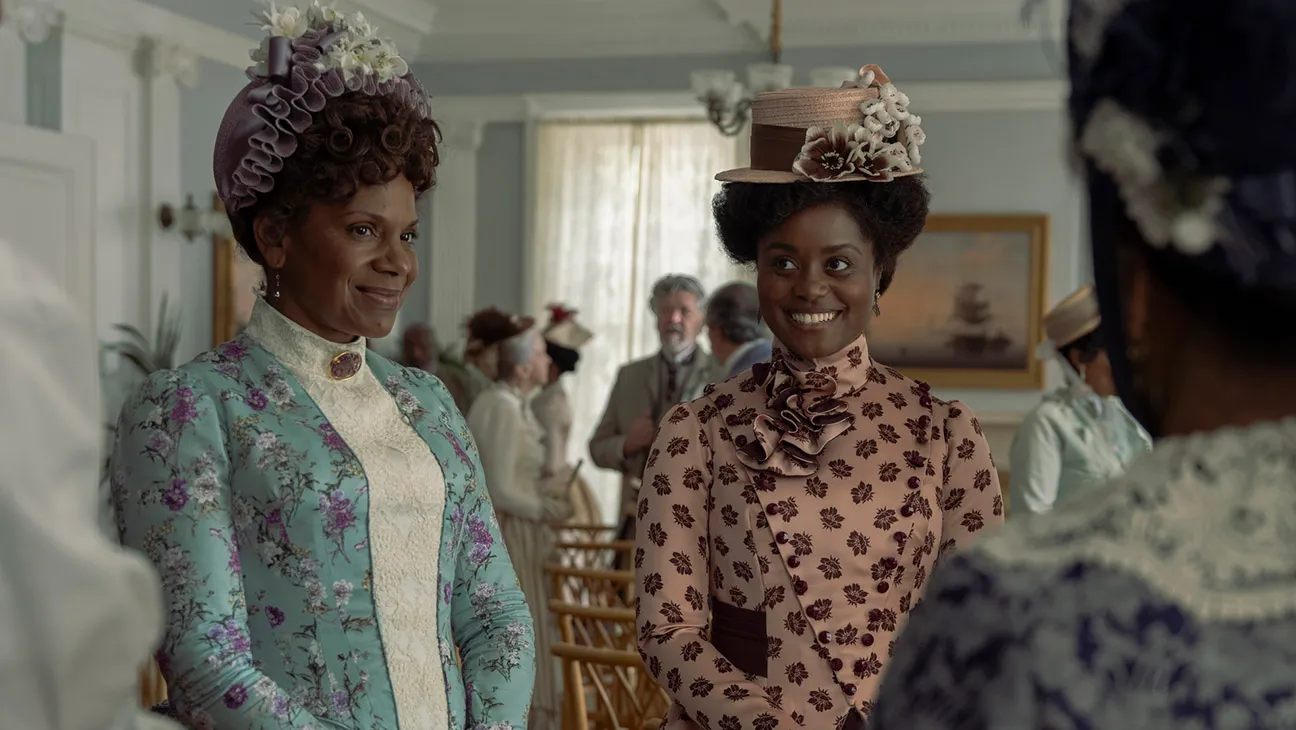
First of all, I want to commend the creators for the excellent writing. I've praised them for this before, but this season has raised the bar a bit. I don't want to overuse this comparison, but I don't know of a better example, so I must. Just like in Taylor Sheridan's series, the characters convey more information in subtle ways – through precise word choice, subtle reactions to events, and by not mentioning certain things, thus leaving them in a vacuum. Let me start from the end – the Japanese communicate similarly. They say the most important things very precisely, poetically avoiding phrases that could be considered rude. While Americans and Europeans are different from the Japanese, we are all human, so we share the same software inside.
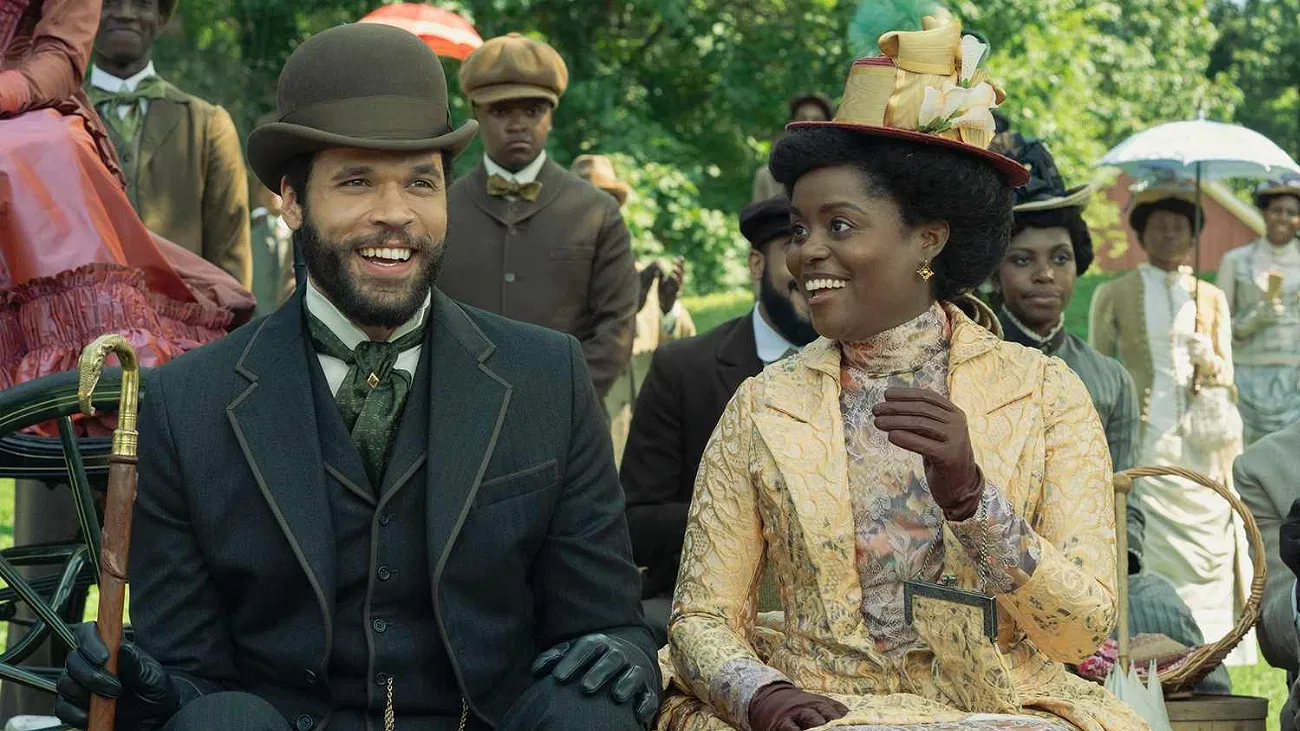
This is best exemplified by the story of Prince Hector and Gladys. Although the marriage initially seemed disastrous, ultimately... Or rather, it turned out differently. Both the modern approach to creating relationships and the way parents created them (as was the case in the past) have their advantages and disadvantages. Yes, artificially created relationships have a lower chance of success, but they're not without merit. People faced with such a situation must find or create shared rituals, share common interests, or find something that unites them. The same applies to ordinary relationships, which stems from the dynamics of relationships. I liked that Hector is a consistently written character. He was introduced as a gambler who doesn't shy away from alcohol and casual encounters with women all over the world. At the same time, it was added that he wants to settle down because he's tired of the royal family's nagging. Or something like that, even if I'm wrong, it's only slightly. The biggest nag is his older sister. She's a stereotypical old man who's never been in a long-term relationship – she grows more and more indolent with each passing year. For some reason, he can't stand 100% on his wife's side and has to balance between Gladys and Lady Sarah.
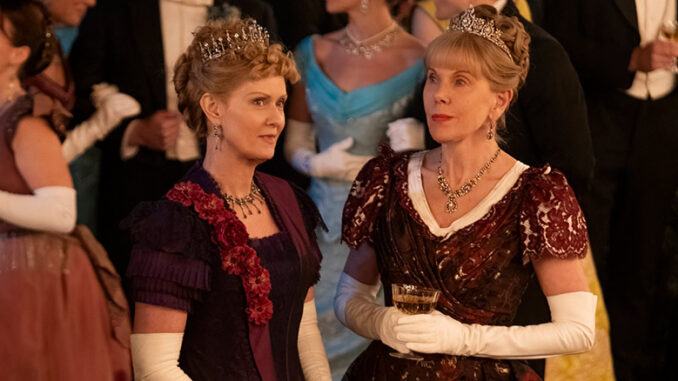
It's a different story when the prince's wife, a true Alpha Female, issues an order. Expanding on what I was saying, communication among wealthier Englishmen differs from how Poles and Eastern Europeans (or Italians, who are also direct) communicate with each other. It's more subtle, with more nuance (which manifests itself in a somewhat forced courtesy, a closer attention to WHAT and HOW we say things), which works both ways. If Gladys isn't using her power, Lady Sarah is abusing it. So what if she's too old to have a child? She still holds a vestige of power. That's how Hector and her mother, who visited her daughter in her new home, presented it to her. Bertha did it directly, demonstrating the tricks women have in their arsenal when they want to convince a husband or demonstrate power. Even today, women are ashamed of this because they are weaker and were raised that way. In those days, we would have called the present "rotten, disgusting libertinism." Hector remained neutral, but guided his wife to a scenario that would resolve their problems with Lady Sarah. I hope this relationship will be a happy one compared to what the show's creators were inspired by. As with the previous season, during Season 3, I came across several articles about storylines explored in the series. One of them was about Consuelo Vanderbilt's marriage to the Duke of Marlborough.
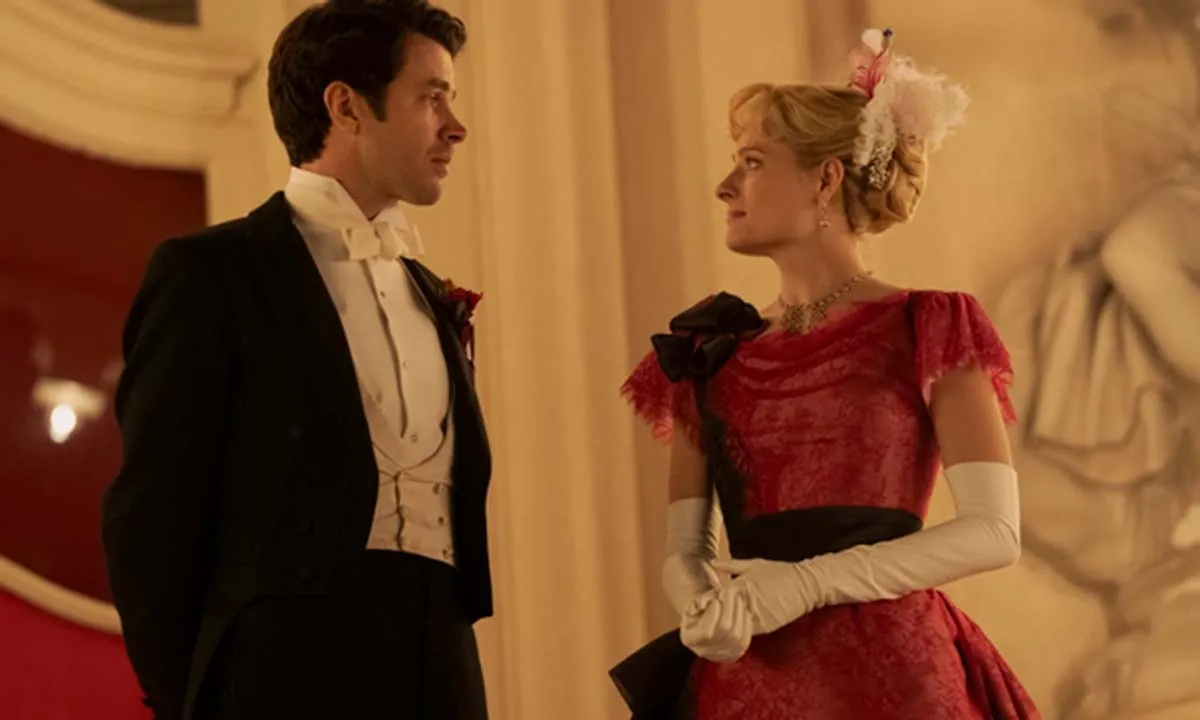
The second storyline that demonstrates the show's high screenwriting skills is the banquet held in honor of George's rival. This event pushed forward a plot that had been developing in the background during Season 2. I noticed that George doesn't feel love for Bertha. Sure, it was obvious on both sides, and they talk about it freely, but it was always about business and feelings. In Season 3, however, feelings were increasingly repressed by both sides, a fact they are fully aware of. Returning to the banquet, due to numerous crises (a normal occurrence in the economy – our lives are also cyclical, meaning there are ups and downs) and the desire to keep the business going, George has to play harder. He asked his wife to put on a show for their guest. That is, treat him like a high-ranking count (with respect and money, but not as much as a prince) and make him feel nice. And what makes men feel nice in the presence of women? Kind words, light flirtation, and showing off their bodies. It's no coincidence that all girls at the time hid their shapely legs, especially their breasts. In Season 1, we were clearly shown that George accepted "the exposure of Bertha's firm assets." The problem with such situations is that the line between good taste and something indecent is very thin, and Bertha crossed it, but through no fault of her own. Or rather, I usually try to be honest. True, she went a little too far with softening up her husband's rival, but it wasn't her initiative. I couldn't help but laugh derisively as I watched George slowly get angry. I said to Asia, "You'll see, as soon as this guy gets out, it's going to be rough." My partner asked, "Why?" - "You'll see, the writers gave too many clues in the form of facial expressions, glances, moments of silence and their length."
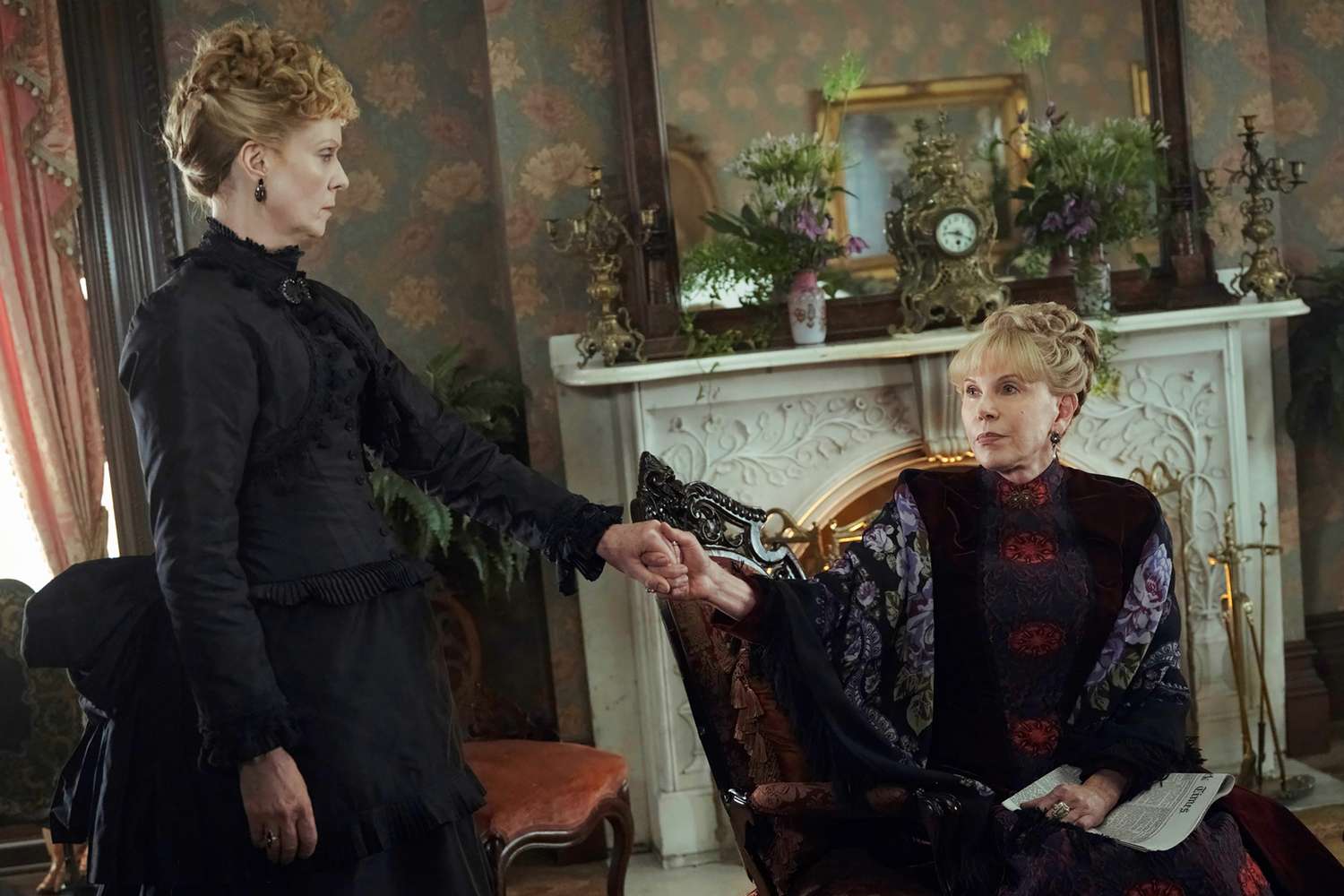
Since Marian Brook is repeating her storylines from previous seasons (but with a better style), I'll pass on hers. While Peggy Scott's love story doesn't stand out in any way (it's handled rather formulaically), at least there's always something happening and it's never boring. I was rooting for her and Dr. Kirkland to overcome their differences. Why am I mentioning it, even though it's fairly standard? Because unlike Marian's storyline, it has some merit. Some people, mainly those with leftist views, argue that racism is exclusive to white people. No, it's a biologically normal reaction, one we see among animals as well. In the case of humans, it can stem from poverty, poor upbringing, or other factors. Black people are no exception. Some are willing to ruin their son's life just to keep him from marrying the wrong woman. After all, what will people say about a woman who abandoned her own child and left the man she chose? It will be an interesting storyline next season. "Remember, daughter, when you get married, you also take his family with you."
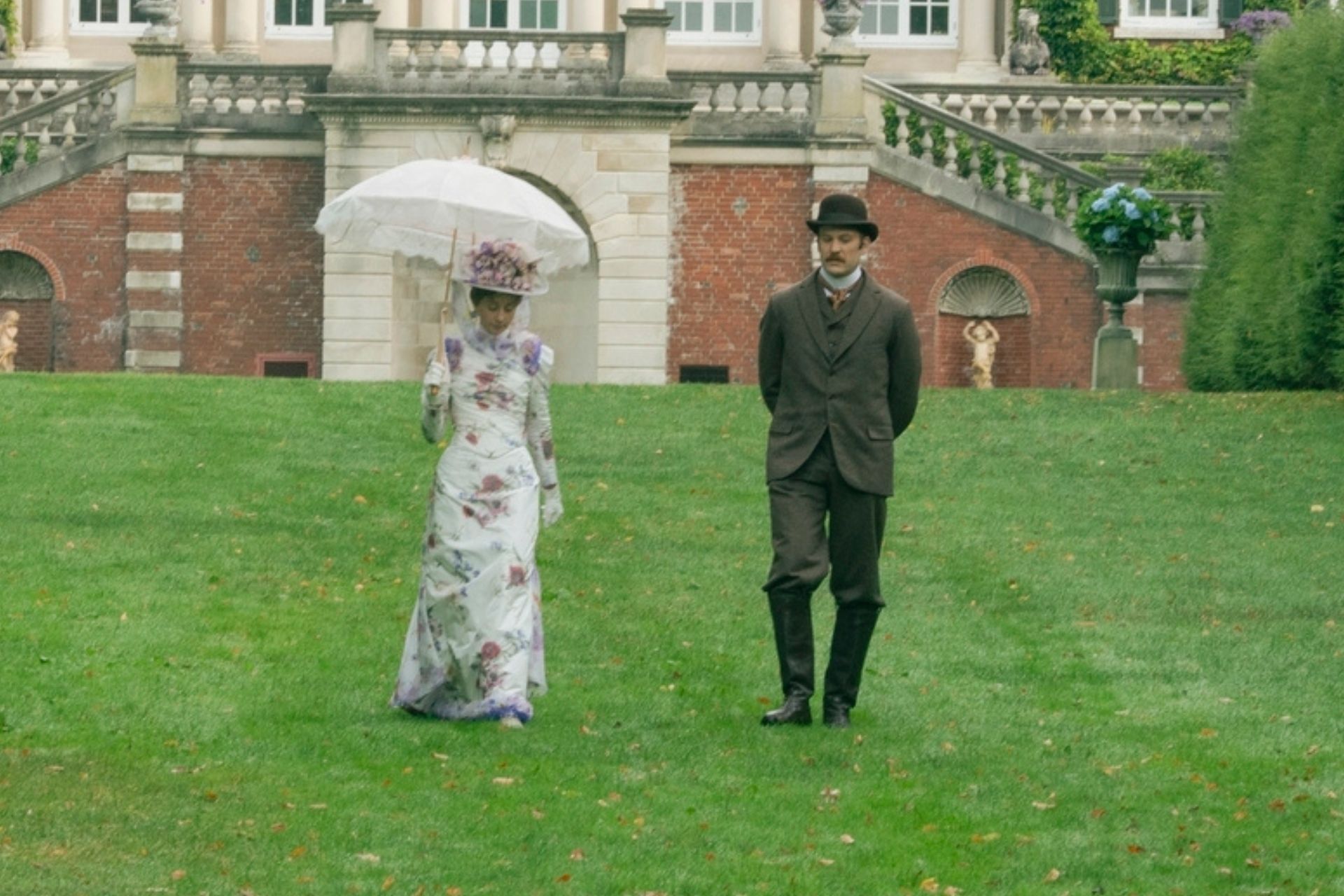
I mentioned difficult relationships and not talking about certain things. When discussing this season, it's hard not to mention Oscar. We, the audience, know that Agnes's son prefers men to women, but the characters could only guess his preferences. This season, that changed – Oscar had a nervous breakdown. "Liberal" Marian didn't have to suspect anything, as she'd likely suspected it for a long time. She reacted too quickly to be anything different. His aunt, Ada, probably understood the situation quite quickly. She might be deceiving herself because of her religion, but she definitely feels something. His mother's reaction, on the other hand... I'll say this, it fits her personality. Even if she feels it, and she certainly has some suspicions, she suppresses it for as long as she can. Their shared conversation about Oscar's feelings is one of the best scenes in the series. The camera jumps from one person to another, showing everyone's reactions and the dynamically changing reactions to their reactions. Marian quickly realized what had happened and, after ascertaining that her suspicions were correct, she embraced her cousin with the tenderness characteristic of women. Ada initially thought Oscar was sad for a different reason, but a few glances at her nephew and niece made her realize why her sister's son was so reserved, withdrawn, and outdated among most of his peers. It was clear he was struggling with his body's reaction, likely due to his faith, but then he remembered the other side of the religious coin—mercy, forgiveness, and understanding for the other side. Throughout this internal struggle, she constantly observed Marian's reflexes. Ultimately, everyone is drawn to sin or unwise practices, as we see in Ada's example. Kudos on the execution. It's great that the end of Season 3 offers some hope for a (relatively) happy future for Oscar. I liked his final conversation with a certain woman about their potential relationship. I had to ask my partner if I understood the situation correctly, as it was quite nuanced.
We also got the finale of Ada and Agnes's rivalry for the house. A cool storyline that gave us a lot of funny and serious scenes. Some people are outraged by the lack of equality in a relationship... Well, I'll be cruel - it's never equal, because it can't be. Not even in homosexual relationships. There also has to be someone who keeps an iron fist over the money and oversees everything. And since they're overseeing, they must have the tools to reprimand others. And since they have them, unfortunately, they'll be considered "the bad guy" when they use them. Ada didn't understand at first and thought Agnes was making a malicious joke, as she often does. Agnes looked at her deadpan several times, explaining that she wasn't joking. Ada Forte is slowly learning the role of Alpha Female, while Agnes is increasingly giving way to her sister. Speaking of funny scenes, the servant becoming mega-rich (by the standards of his social class) was also a great storyline. I've read about several such cases where a talented employee of a certain household found a way to relocate.
I don't know how to end this post. As I said, we got another great season of a great show. My rating is 9/10 and I recommend it to everyone.
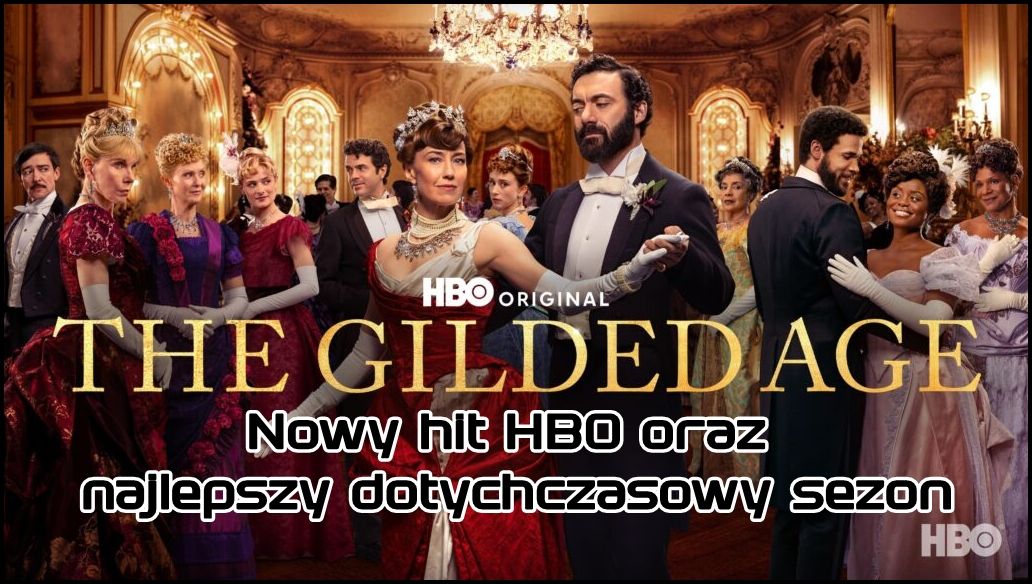
Jeśli jesteście fanami Downtown Abbey i szukacie kolejnego serialu od jego twórców, macie już co oglądać. Nie musicie nimi jednak być, by cieszyć się z seansu. Wystarczy, że przypadnie Wam do gustu setting, bo o jakość serialu nie ma się co obawiać. Trudno ocenić, czy jego poziom rośnie z sezonu na sezon. To trochę inny przypadek. GA trzyma wysoki poziom od początku i nie widzę dużej różnicy między 1, 2, a 3. Chociaż nie, drobna korekta - jest zauważalna różnica, jeśli chodzi o wątek głównej bohaterki, jest zdecydowanie mniej irytująca. Nadal uważam, że Boardwalk Empire, jest lepsze, ale jest tylko o klasę gorzej, może pół klasy. UWAGA! Ten i kolejne 4 akapity, nie zawierają spoilerów. W kolejnych odniosę się do tego, co było w tym sezonie, ale nie będę zdradzał najważniejszych spraw. W ostateczności napiszę o nich bardzo ogólnikowo.

Ale od początku. Choć docelową grupą tego serialu stanowią głównie kobiety oraz miłośnicy kina kostiumowego, to spodoba się też mężczyznom. Nieprzypadkowo odnoszę się do terminu, który kojarzy się z erą Wiktoriańskiej Anglii. Akcja serialu dzieje się w latach '80 XIX wieku, głównie w Nowym Yorku, ale nie tylko. Choć większość Amerykanów nie czuje kompleksów względem Brytyjczyków, ich elita już tak. Widać to od początku wśród członkiń Stowarzyszenia Kobiet oraz Angielskiej elity, która wie, że może sobie pozwolić na pewną wyższość. Serial porusza mnóstwo wątków. Pomijając te, o których wspomniałem, twórcy pokazują nam elitę Czarnoskórych (faktycznie taka istniała, ten wątek został również poruszony w Boardwalk Empire) oraz ich biedotę, głównie tych pierwszych. W przypadku Białych, biedota jest reprezentowana przez służących. Choć stanowi on istotną część, widzimy głównie Białą klasę wyższą. Widzimy rywalizację między nimi, obserwujemy ich zwyczajne i codzienne życie. Wbrew pozorom, to nie tylko zabawa. Kobiety choć udają wielkie przyjaciółki, to lubią wykorzystywać okazje, do wbicia szpilki drugiej, aby urosnąć w swoich lub cudzych oczach. W przypadku mężczyzn, skupiamy się głównie na ich interesach, gdyż balety i wspólne popijanie herbatki, są dla nich nudne. Wolą wypić alkohol i porozmawiać o pieniądzach.

Głównymi bohaterami serialu są Agnes van Rhijn, Matrona rodu oraz właścicielka domu, jej siostra Ada Forte i Marian Brook, ich osierocona siostrzenica. Agnes jest cyniczną, ostrą, ale też dobroduszną i sprawiedliwą "babą z jajami". Potrafi tak zdzielić swojego oponenta jednym tekstem, a czasem spojrzeniem, że boli jak uderzenie batem na gołe plecy. Największa samica alfa w tym serialu - Bertha, Pani domu Russellów, wg mnie przegrała tę rywalizację. Ada Forte to bardzo grzeczna i wybitnie naiwna kobieta, ale z pewnych powodów, musi się nauczyć być Panią domu. Efekty są całkiem niezłe, Ada pokazuje że miękki przymus może być taki sam skuteczny. Marian Brook... No... jest. No wkurza, ale trudno się jej dziwić - to młoda, naiwna i dobra kobieta. Z czasem mniej irytuje. Jest też syn Agnes, Oscar. Jest inwestorem, więc na pewno nie można nazwać go głupcem, ale naiwnym i skrzywdzonym już tak. Rozwinę tę kwestię w późniejszym akapicie.
Druga rodzina to Russellowie. Bertha jak już mówiłem, to druga największa samica. Choć potrafi trzymać nerwy na wodzy, jak Agnes, to jest też niezwykle impulsywna i emocjonalna. George Russell, jej mąż, to twardo stąpający po ziemi biznesmen. Bardzo męski, logiczny do bólu, trudno go przekonać z uwagi na jego trafne argumenty, ale nie ma mózgu zalanego betonem. Potrafi dynamicznie dostosować się do nowych okoliczności. Ich syn, Larry, idzie drogą ojca i póki co tylko tyle mogę o nim powiedzieć. Gladys, córka, stanowi klejnot w koronie Berthy i George'a.
![g2.jpg](https://files.